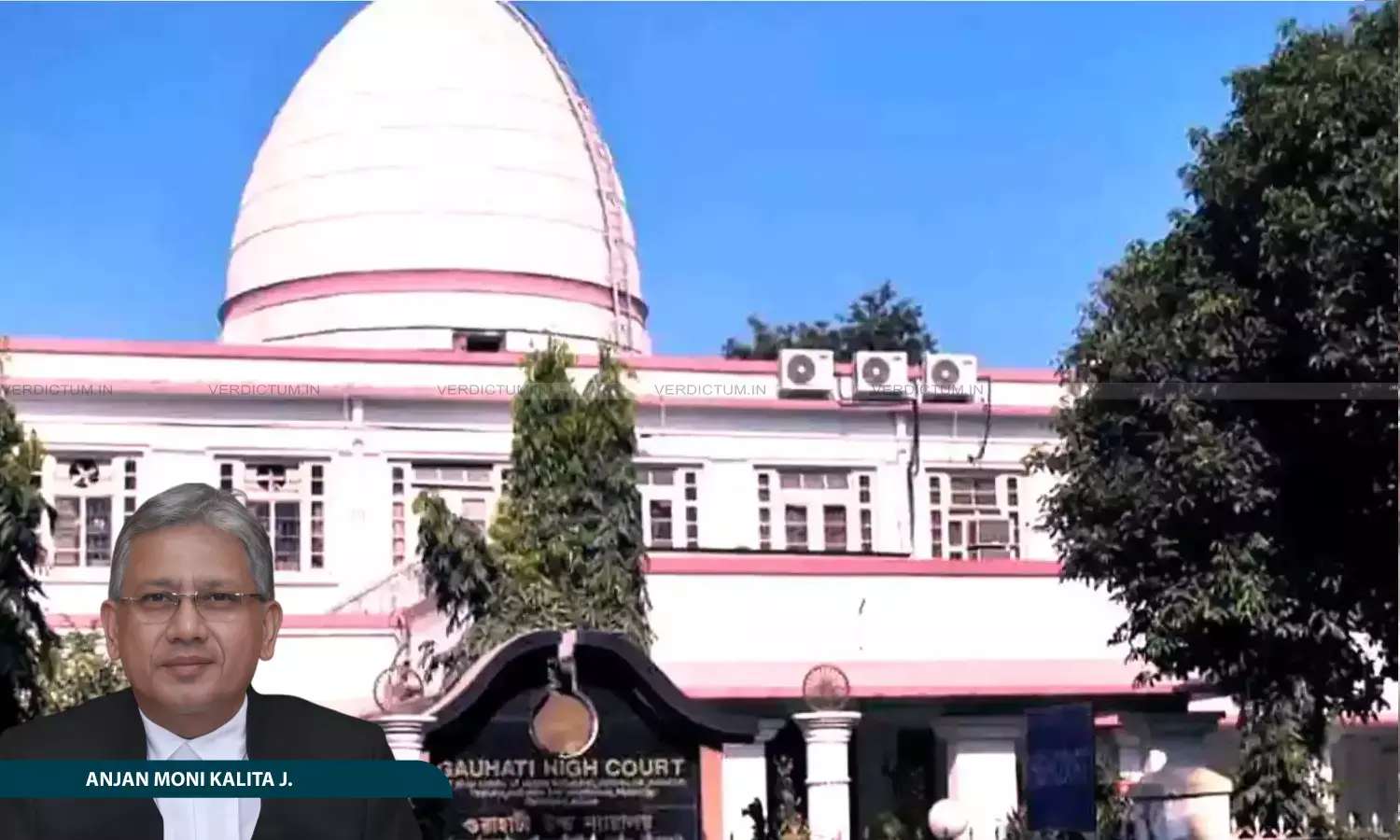Arrest Of Woman At Night Without Magistrate’s Permission Illegal: Gauhati High Court Grants Bail To Woman Arrested At 1 AM
The High Court held that the arrest of a woman after sunset and before sunrise, without prior written permission of the Judicial Magistrate First Class, violates Section 46(4) CrPC and renders the arrest illegal.

The Gauhati High Court has held that the arrest of a woman during nighttime without prior approval from the jurisdictional Judicial Magistrate First Class makes the arrest illegal in terms of Section 46(4) of the Code of Criminal Procedure.
The Court observed that compliance with the statutory mandate assumes central importance as a violation affects constitutionally guaranteed rights under Articles 21 and 22(1).
The Court was hearing an application seeking regular bail filed under Section 483 of BNSS, 2023, arising from offences initially registered under the IPC and later including provisions of the Protection of Children from Sexual Offences Act, 2012 and Juvenile Justice (Care and Protection of Children) Act, 2015.
A Bench comprising Justice Anjan Moni Kalita, while adjudicating the matter, reiterated that “the mandate of Section 46(4) of Cr.PC is that if a woman is to be arrested after sunset or before sunrise, then save in exceptional circumstances, where such exceptional circumstance exits, the woman police officer shall by making a written report, should obtain prior permission of the Judicial Magistrate of the First Class within whose local jurisdiction the offence is committed or the arrest is to be made”.
Upon examining the material placed on record, the Bench noted that “neither any such prior permission from the Judicial Magistrate First Class was found in the records nor any such permission was submitted before this Court during the hearing”, and therefore held that “in absence of such permission from the Judicial Magistrate First Class, the arrest becomes illegal as the same is in violation of the statutory provision of Section 46(4) of the Cr.PC”.
Advocate N. J. Dutta appeared for the accused applicant, while the respondents were represented by Additional Public Prosecutor P. S. Lahkar.
Background
The FIR alleged severe physical torture of a three-year-old foster child. Following registration of two FIRs, police arrested the applicant along with other co-accused and later filed charge-sheets adding offences under IPC, JJ Act, and POCSO Act. The applicant has been in custody since May 2023, and the trial is ongoing, with only 15 out of 74 witnesses examined.
The applicant sought bail on multiple grounds, including prolonged incarceration, violation of statutory safeguards during arrest, and parity with co-accused who have already been granted bail.
The prosecution opposed bail, submitting that no prejudice was caused and that the accused was aware of the grounds of arrest.
Court’s Observation
The Gauhati High Court recorded the applicant’s undisputed assertion that she was actually apprehended at 1:00 AM and later shown to be arrested at 11:00 AM. The Bench reiterated the mandate of Section 46(4) CrPC that no woman shall be arrested after sunset and before sunrise except in exceptional circumstances, and even then, only when the woman police officer shall, by making a written report, obtain the prior permission of the Judicial Magistrate of the First Class.
The Bench found that neither any such prior permission was found in the records nor any such permission was submitted before this Court, therefore holding the arrest to be illegal for being in disobedience of mandatory statutory protection.
The Court found that the notice of arrest did not mention substantive grounds, violating Section 50 CrPC and principles laid down in Prabir Purkayastha, Vihaan Kumar, and Mihir Rajesh Shah. The Bench also found no record of notice to relatives, contrary to Section 50A CrPC, defeating the purpose of enabling timely legal assistance.
Further, the Arrest Memo did not bear attestation by a family member or a respectable local person, which the court found to be contrary to Section 41B(b)(i) and the safeguards laid down in D.K. Basu v. State of West Bengal, thereby infringing the accused’s rights under Articles 21 and 22(1).
The Court also considered the delay in trial, noting that despite two and a half years of custody, a considerable number of witnesses remain yet to be examined. Citing Rabi Prakash, Mohd. Muslim @ Hussain, and Sariful Islam @ Sarif, the Court held that prolonged custody pending trial weighs in favour of the grant of bail.
The Court noted that other accused, including the applicant’s husband, facing similar charges, had already been released on bail, and applied the principle of parity.
Conclusion
Holding that there were clear violations of Sections 46(4), 50, 50A, 41B(b)(i), and 60A of the CrPC that “go to the very root of the arrest proceeding” coupled with more than 2½ years of incarceration while trial remains incomplete, the Court directed that the applicant be released on bail with conditions ensuring cooperation with the trial, non-interference with witnesses, surrender of identification documents, and restriction on leaving the trial court’s jurisdiction.
The bail application was accordingly disposed of.
Cause Title: Dr Sangeeta Dutta v. State of Assam & Another (Neutral Citation: 2025:GAU-AS:15556)
Appearances:
Petitioner: Advocates W. R. Medhi, N. J. Dutta, S. Rahhman, A. Basumatary, S. I. Ahmed, P. Talukdar, A. V. Singh
Respondents: P. S. Lahkar, Additional Public Prosecutor, Assam; Advocates A. K. Hajong, S. K. Chakma, D. Ghosh, P. Bhardwaj, D. J. Kapil


